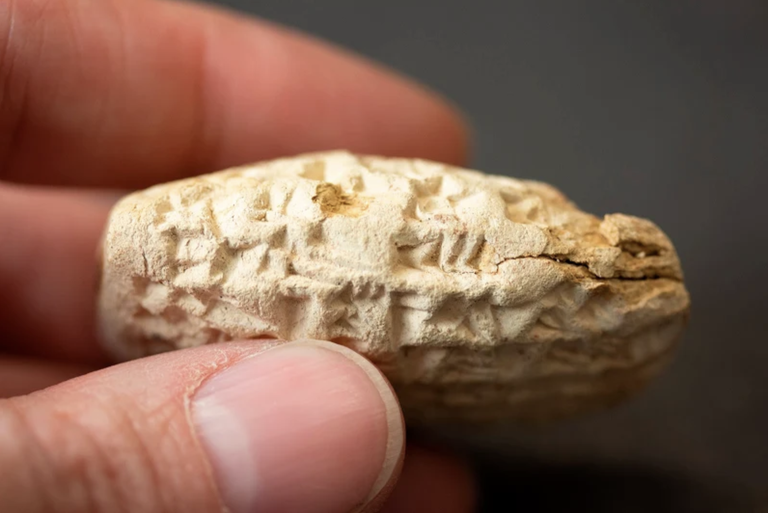Faculty Focus: Odette Boivin
Entrepreneurship in 6th century BCE Babylonia
 Clay tablet BM 103651 from southern Iraq, from the 6th century BCE. Photo © Odette Boivin. Taken courtesy of the Trustees of the British Museum
Although the wealth and might of imperial Babylon have entered popular culture, we know remarkably little about the internal structure of the realm of Nebuchadnezzar II, largely because no central palace records of note have been recovered. The workings of this kingdom, which controlled the major part of the Near East in the late 7th and more than half of the 6th century BCE, must thus be pieced together from scattered groups of texts. However, a wealth of relevant information comes indirectly from so-called family archives, that is, from documents written, collected, and kept by private individuals about the economic and legal affairs of their household.
Clay tablet BM 103651 from southern Iraq, from the 6th century BCE. Photo © Odette Boivin. Taken courtesy of the Trustees of the British Museum
Although the wealth and might of imperial Babylon have entered popular culture, we know remarkably little about the internal structure of the realm of Nebuchadnezzar II, largely because no central palace records of note have been recovered. The workings of this kingdom, which controlled the major part of the Near East in the late 7th and more than half of the 6th century BCE, must thus be pieced together from scattered groups of texts. However, a wealth of relevant information comes indirectly from so-called family archives, that is, from documents written, collected, and kept by private individuals about the economic and legal affairs of their household.
During my time at ISAW, one of my projects has been to translate and analyze about 200 texts belonging to the archive of a family of entrepreneurs based in the city of Larsa, in the southern Euphrates area. The clay tablets reveal the day-to-day dealings of two generations of ancient “businessmen”, a father and his son. They transacted in agricultural crops and silver, engaging in private partnerships as well as business dealings with temples and state officials.
Based on these economic transactions, I have examined how the Neo-Babylonian kings initiated a vast program of agricultural valorization of the southern alluvial plain, and how the army was involved in this program. The entrepreneurs, who belonged to what one could call the middle class, interacted with people of all walks of life. This makes it possible to examine a variety of aspects of social life in a town that had gone through dramatic reversals of fortune and was evolving rapidly. Its social structures were apparently somewhat more fluid than in other contemporary Babylonian cities.
After (hopefully) the worst of the Covid pandemic was over, I was able to travel in order to re-examine problematic tablets in a collection housed in Michigan, the last piece in the puzzle for reconstructing the archive. I am currently completing a book manuscript for publication. In parallel, I am working on the broader context of the political and socio-economic program of the Neo-Babylonian kings, including its ideological underpinnings in the preceding millennia.